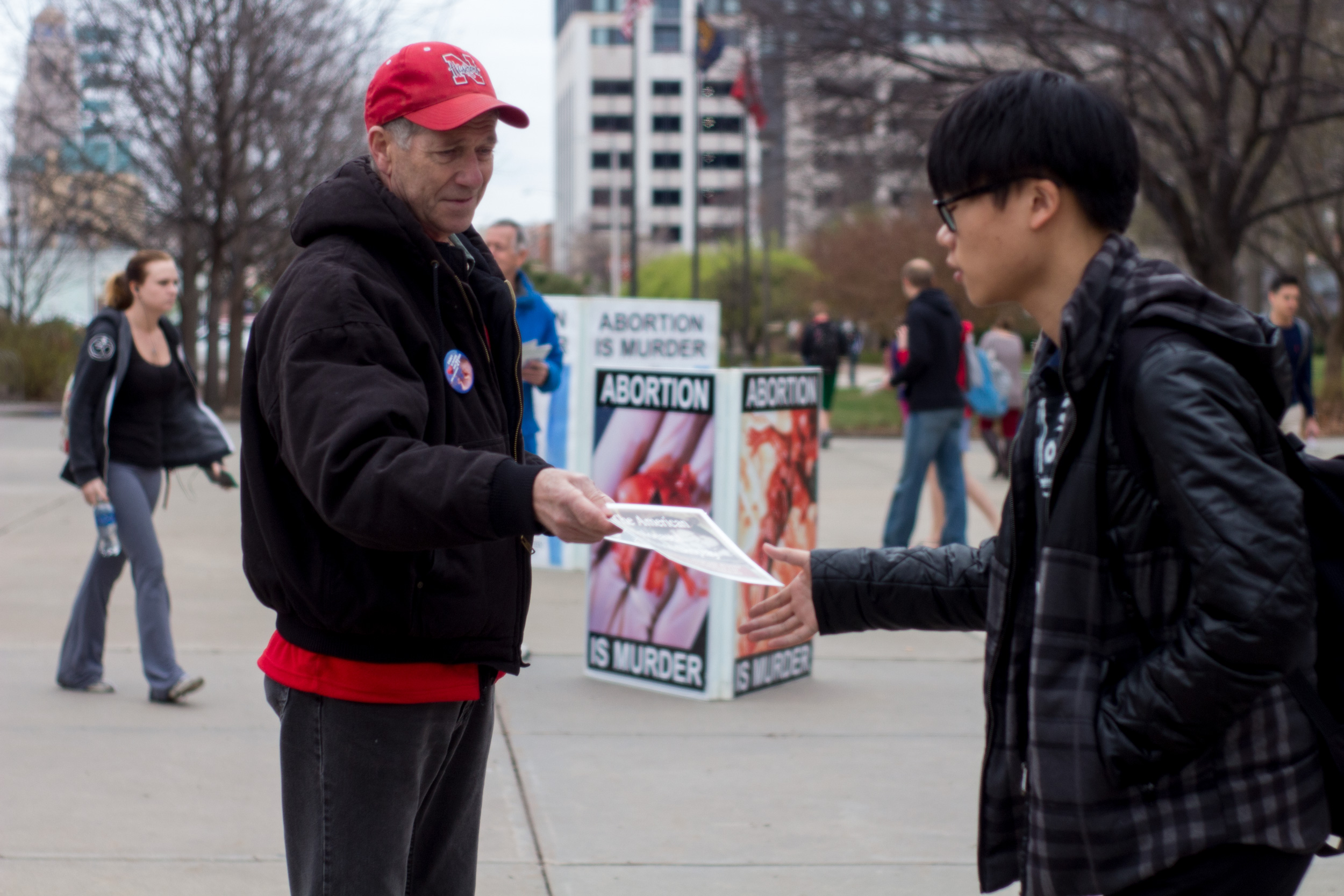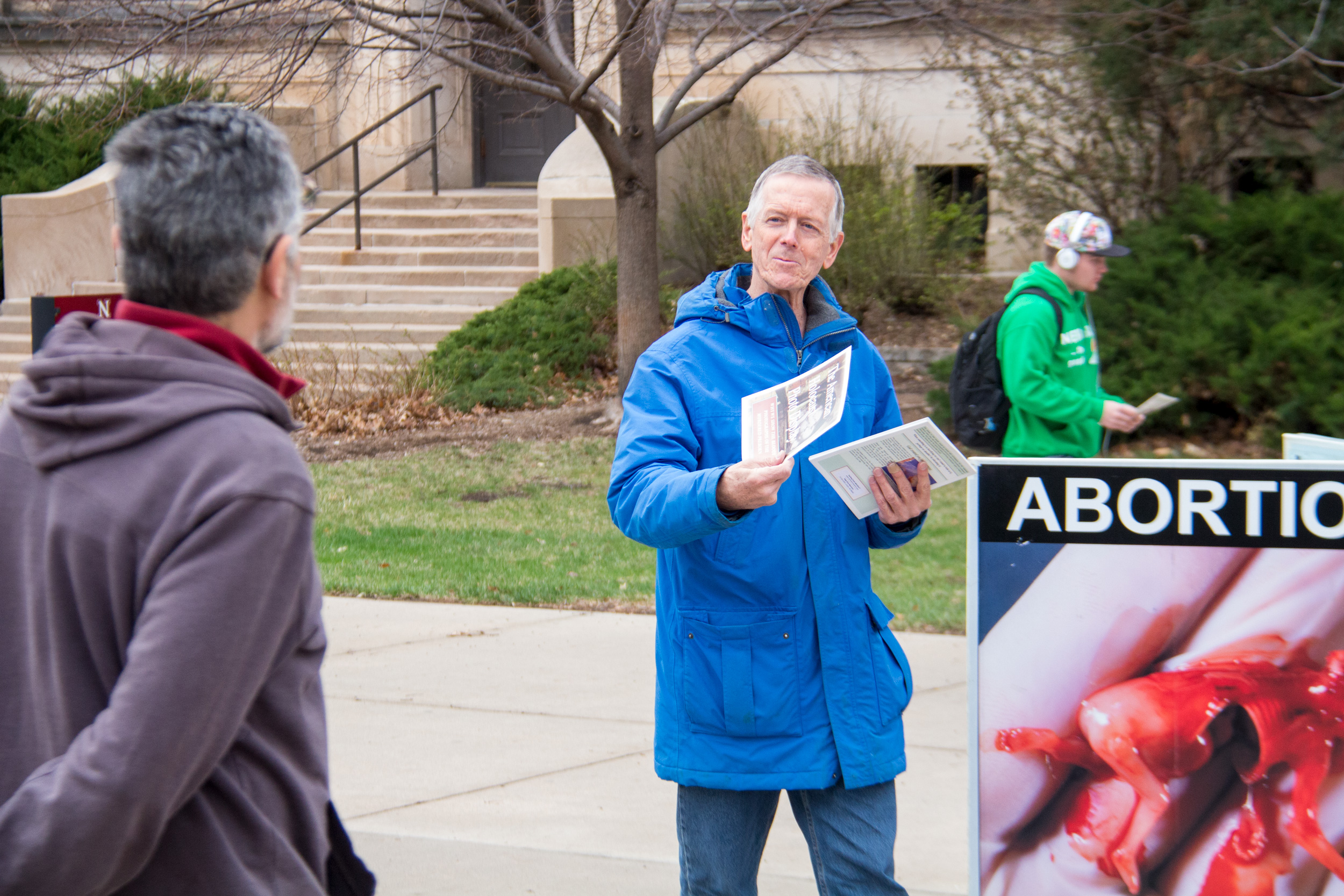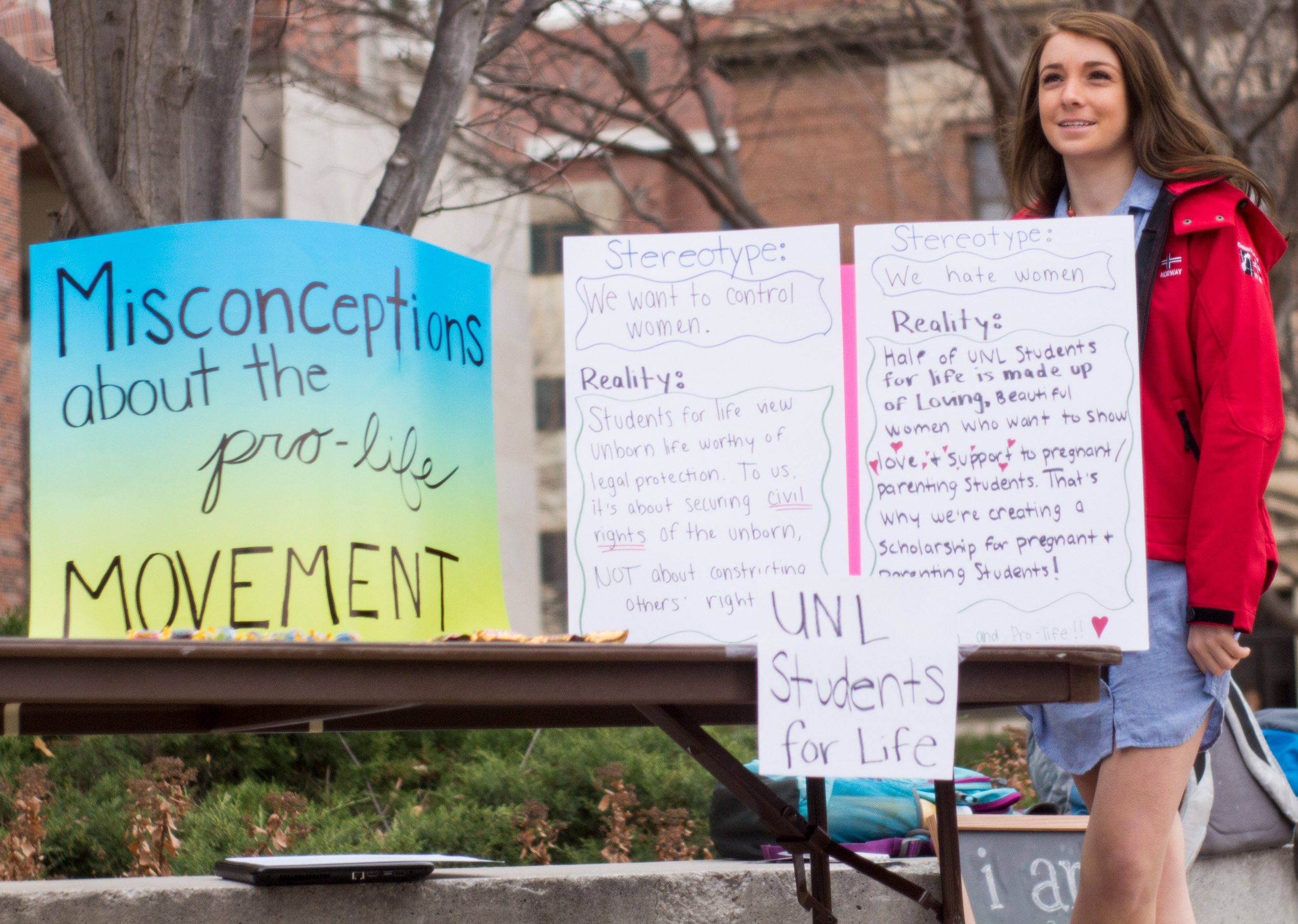

Invited or not, all speakers have a place at UNL
Tanner McKerlie, the current president of the University Program Council, says you don’t come to college just to get a degree.
“It’s about equipping yourself to be a contributing member of society when you graduate, and that’s why we bring these events to complement students’ curricular education,” he said.
And sometimes this education happens beyond the classroom. When individuals come to campus to speak about an issue, they facilitate an exchange of ideas that promotes learning.
In October 2015, a group of University of Nebraska-Lincoln students held a rally for Black Lives Matter on the green space in front of the Nebraska Union, choosing the space because of its visibility and its history as a meeting place for the spread of ideas.
Dani Young was one of these organizers. She was asked to speak after her work on #NotAtUNL, the campaign that started the conversation about race and racism on campus. She would later be awarded the Chancellor’s Award for Outstanding Contribution to the Status of Women for the movement she started.
“You hold these type of things where your community is,” Young said. “I wouldn’t imagine holding it anywhere else.”
The green space is one of the spots on campus that qualifies as a public forum, according to Dr. Juan Franco, vice chancellor for Student Affairs.
By its legal definition, a public forum is a government-owned property that is open to public expression and assembly. These forums, like the green space and the plaza in front of the Nebraska Union, serve as places for anyone from the public to come and speak about their ideas. This can include handing out fliers, holding a protest, or simply talking to anyone who will listen.
“We’ve really had people go anywhere they can, but the west end of the plaza is the most popular spot, probably because it can hold so many people,” Director of Nebraska Unions Charlie Francis said.

An official process does not exist to host an event, hold a protest or speak to students and faculty on UNL’s campus. There are also no official laws or policies by the university that limit who can use the forum and when.
ASUN’s statement on student rights and responsibilities says, “The institutional control of campus facilities should not be used as a device of censorship.”
Francis said the administration usually does not know when a speaker will use the space.
“It’s pretty open to anyone,” he said. “A lot of the time, we find out about it when we look out the window and see a crowd starting to gather.”
During a semester, there are at least 8 to 10 instances when UNL will see a speaker come to the green space or plaza. Most of the time the uninvited speakers are “traveling preachers,” people who come to spread their religious views to the students and faculty on campus.
The preachers are usually peaceful, but there have been times when UNLPD has stepped in.
“We’ve had some groups or individuals that will draw a large crowd of people and will engage with someone,” Francis said. “And then you’ll hear voices get raised or certain words be said. But usually if there is a big crowd starting, a police officer will be there and they won’t intrude unless they have to.”
When members of the religious group Consuming Fire Fellowship created a stir in front of the Nebraska Union in 2015, then-Chancellor Harvey Perlman sent an email to faculty and students acknowledging that although speech in a public forum can sometimes be offensive, it is protected by the First Amendment.
Franco said there is a policy that says universities have to provide an area designated for freedom of expression. This area cannot be hidden, but it can be in an area away from classrooms or outside buildings.

“One of the biggest values we have in the United States is the freedom of expression,” Franco said. “We follow the Constitution and are very careful to make sure we don’t go against those laws. While we encourage it [freedom of expression], the only thing we ask is that the people who are expressing themselves do not interfere with the operation of the university.”
But the majority of speakers on campus are invited. The University Program Council is a student group that brings diverse, educational programs to campus to enhance the student experience. While one of its functions is to plan entertainment for students, the other is to provide diversity education.
At the beginning of each academic year, UPC puts together a list of relevant topics it would like to cover. After the list is finalized, the process of inviting speakers begins.
McKerlie said UPC aims to invite speakers who can speak to something culturally relevant or something that affects a certain population of students. These topics can include anything from body acceptance, like Kimberly Dark’s “Things I Learned From Fat People on a Plane” speech, to gun control, like Dr. John Lott and Paul Helmke’s “The Great Gun Control Debate.”
“We try to find someone who will provide value for the students,” McKerlie said. “Whether that’s opening their minds to accept a group of people or educating them on issues that others face they otherwise wouldn’t have known about.”
Since UPC is nonpartisan, it cannot bring anything explicitly political, religious or ideological to campus.
Because of this, its speakers usually don’t see much controversy, McKerlie said.
When Young participated in the Black Lives Matter rally, however, she was the target of much blowback from members of the community.
“I was bombarded with comments about how I was stirring the pot,” she said. “It was absolutely worth it, but it truly was one of the most draining moments in my life. I wish [the issue] would move past rallies and into the classroom where real dialogue can begin to happen.”
That, Franco said, is precisely the reason the university keeps the campus open to speakers and hosts this public forum.
“We encourage freedom of expression on campus. We welcome different opinions and thoughts,” he said. “That’s how our students learn and get to hear other perspectives and grow from that.”